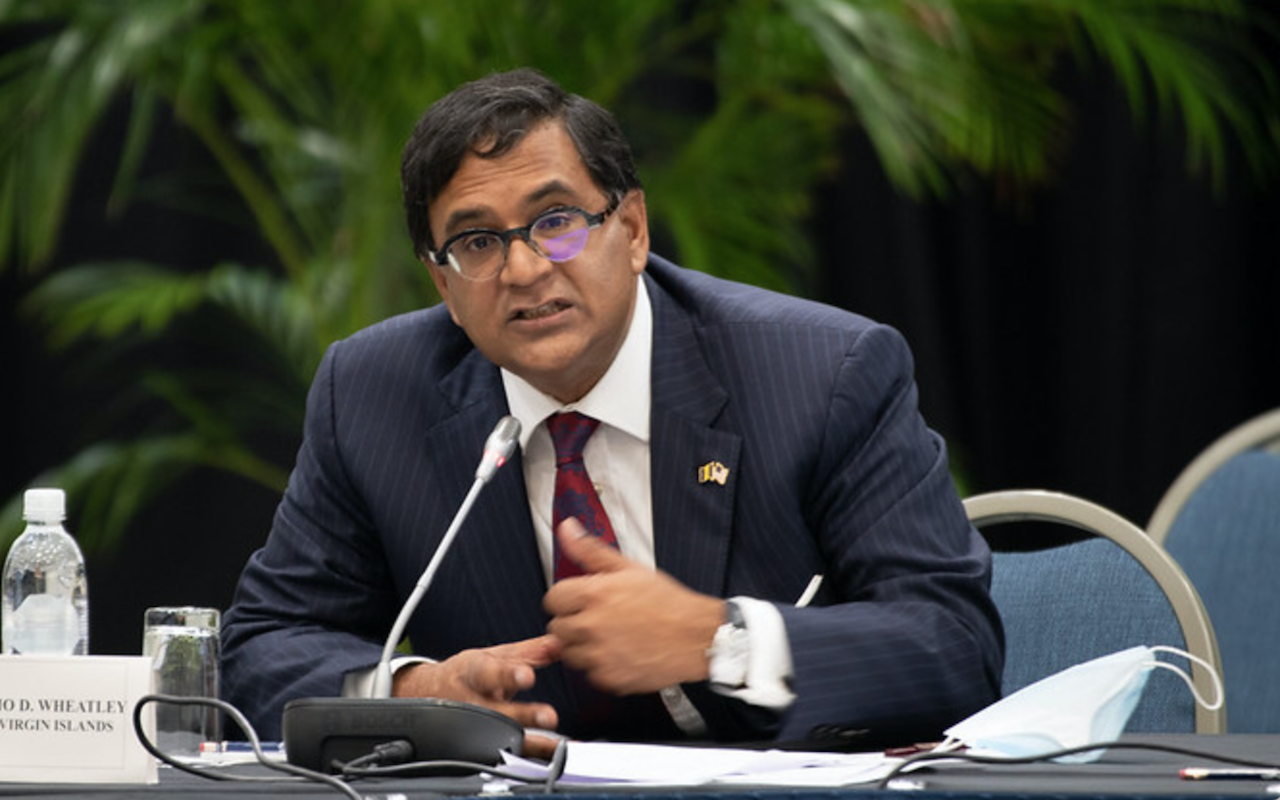Barbados and some of its Caribbean Community (CARICOM) neighbours could be inching closer to having a fast ferry system that would see faster and more affordable transportation of cargo and people and help put a dent in the region’s food import bill.
However, the initial investment is estimated to be a major one – in the region of about US$100 million (BDS$200 million) – and the plan could take close to two years to materialise.
Chairman of the CARICOM Commission on the Economy Professor Avinash Persaud told Barbados TODAY that officials were making headway with plans for a new ferry service.
“We are currently in negotiations with some potential private partners who will deliver that if governments provide some support, but it is early days yet,” he disclosed.
Persaud explained that the discussions included examining the possibility of two specially-built vessels.
One passenger vessel would be similar to the one that operates between Port of Spain and Tobago, while the other would be a smaller one to transport cargo.
In April last year, Trinidad and Tobago welcomed a new passenger fast ferry, Buccoo Reef, with a capacity for 1 000 persons. The price tag on that vessel, which was built in Tasmania, Australia, was US$72.9 million. The twin-island republic has other cargo and passenger vessels.
“They are really big boats. They cost US$75 million and we also need a secondary boat that is more cargo-focused. So, to make a smoother ride for passengers and a fast ride for cargo, you are probably spending out US$100 million,” said Persaud.
Even after governments agree to the new service, vessels would have to be built, and regulatory and other issues would have to be ironed out to ensure smooth operation between countries.
“So, people are putting proposals to us. Even let’s say we like one of these proposals and go through a tender process, once we have decided that is an idea worth getting a tender over then it will take about 18 months to build the boat. So this is not happening around the corner, but it is a critical long-run to the food bill,” said Persaud.
CARICOM states are aiming to reduce their collective US$6 billion agri-food import bill by 25 per cent by 2025.
Barbados alone has an annual food import bill of over $600 million, with fruits and vegetables accounting for roughly 10 per cent of that.
The bill is expected to increase even further this year due to several issues, including the ongoing war in Ukraine and supply disruptions which are driving up costs.
Noting that climate change was also a factor that was impacting costs, Persaud told Barbados TODAY that achieving food and nutrition security across the region was extremely critical.
“To make sure that we have nutrition security and access to cheaper food, transport is actually one of the most important things,” he said.
“Ultimately, we are too small to feed ourselves continuously. We can improve the amount of nutrition security we have but we can never get there completely. And it wouldn’t make sense when we are next door to Guyana and Suriname and part of the same region as Belize – three countries with tremendous agricultural potential that can always deliver food at a greater quantity and lower cost than we could. “So we need to be strategic and niche. But for the region, we need these other countries to be exporting food across the region and it requires transport,” he explained.
Prime Minister Mia Mottley announced earlier this year that Bridgetown and Georgetown would be establishing a Barbados/Guyana food terminal, a mechanism that would enable swifter transportation of food produced in the region.
For this, Guyana would serve as a main food production hub while Barbados would act as a hub to transport agricultural produce between the island and CARICOM member states.
A part of the plan will include some seven acres of land in Lears, St Michael which will have a purpose-built facility to accommodate about 40 containers at a time, a reservoir holding 20 million gallons of water, and land for crop production.
The Report of the CARICOM Commission on the Economy speaks to the freer movement of people and goods, with a recommendation for the speeding up of the movement of people and goods by facilitating a private sector-led initiative to establish a fast ferry network.
It further recommended that the same ease of immigration for international cruise ship passengers should be applied to CARICOM residents moving on the fast ferry, and that CARICOM citizens from one state should be able to carry their vehicles on board with them and drive off at another member state for short stays.
The report also suggested a fast dispute resolution mechanism to deal with situations where goods are not allowed to flow freely within the region or contentious levels of duties or charges are applied.
marlonmadden@barbadostoday.bb




